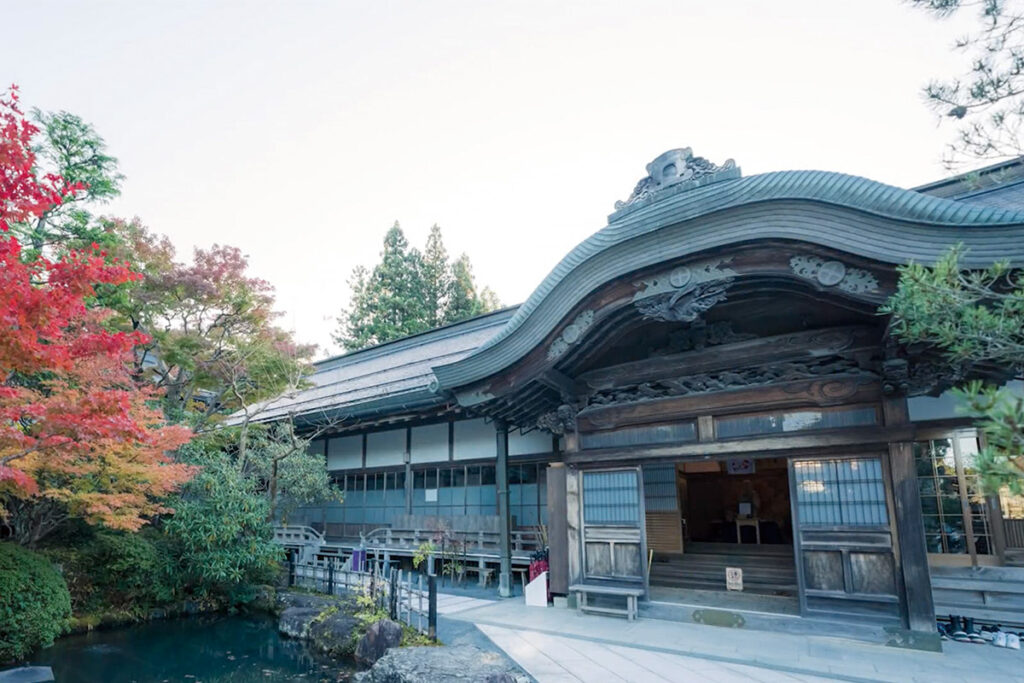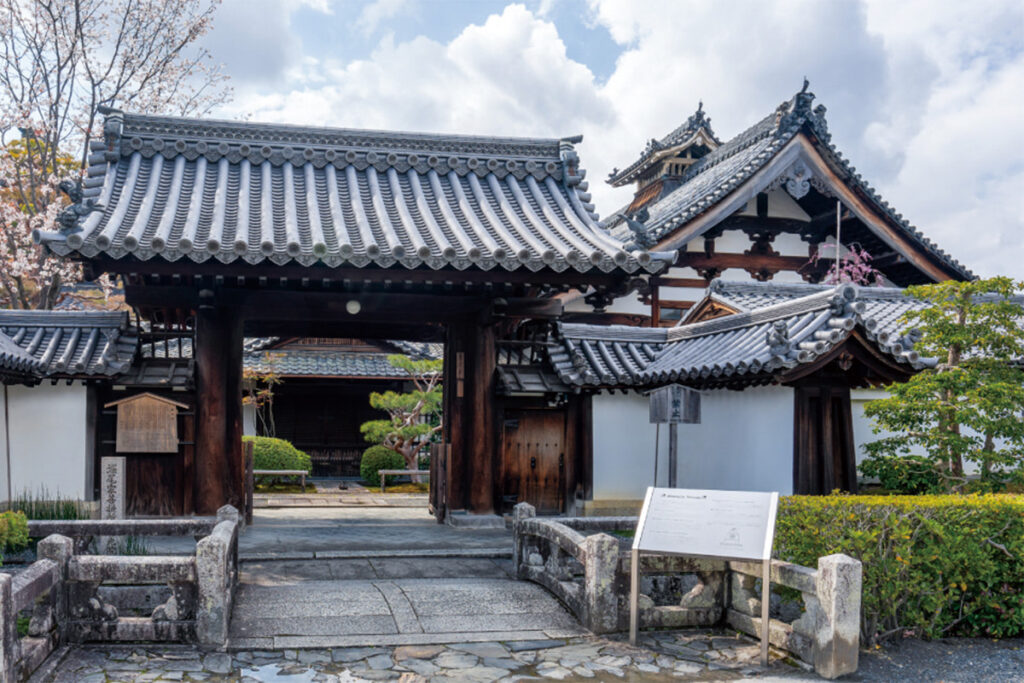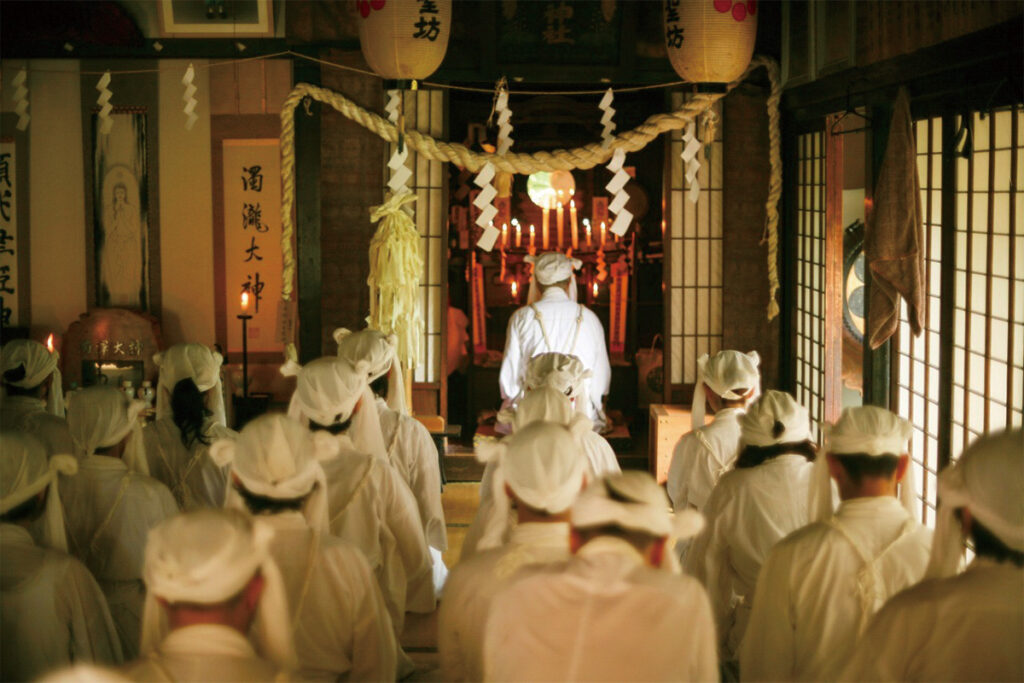Zen Luxe: Private Yoga & Meditation Retreats in Japan
Serene stillness, rustling bamboo, temple bells, the smell of incense, tatami floors and the feeling of complete relaxation and Zen: visiting a Japanese temple for a day trip is one thing, but staying overnight is a completely different experience. Through guided meditations in a serene space, far from the bustling noise of modern life, every detail of your stay—from a stone basin catching mountain rain to the calligraphy on a scroll—invites reflection, presence and peace.
In Japan, signing up for a Zen retreat at a Buddhist temple is easier than you think. Meditational guides are performed by Buddhist monks, Shingon monks, Tendai priests or lay teachers who embody quiet wisdom deriving from traditional Japanese teachings. These sessions may include zazen (seated meditation), kinhin (walking meditation) and chanting, all of which can be personalized when booked privately. Depending on which temple you choose, you can surround yourself with limitless nature and beautiful mountains, which enhances your sense of inner calm.
You’ll be provided with delicious cuisine—shojin ryori, for example, which is a plant-based meal that follows Buddhist principles of mindfulness and seasonal harmony. You can even stay in a minimalist-style tatami room surrounded by Zen gardens or the forest. If you want, you can partake in other activities such as tea meditation, calligraphy classes or sutra copying.
Across Japan, many temples welcome guests for overnight retreats that offer a deeper glimpse into traditional culture and spiritual practice. In this article, we explore some of the most inspiring temple stay experiences the country has to offer.

Ekoin Temple: Fire Rituals, Shojin Roryi, Sutra and More
First on our list is Ekō‑in (Shukubo Ekoin), located on Mount Kōya in Wakayama Prefecture. Ekoin Temple (恵光院) is a temple with a 1,200-year history dating back to Kobo Daishi Kukai, the revered monk who built the five-story pagoda and enshrined Bishamonten and Fudo Myoo, later moved from Kyoto’s Toji Temple to the rebuilt Ekoin Temple. Today, Ekoin continues to uphold Buddhist teachings that have been passed down through generations and are still actively practiced.
Ekoin Temple offers a wide variety of experiences, including morning religious services that include offerings made to the spirits every morning revolving around the deities Fudo Myoo, Kobo Daishi and the Ryokai Mandala, which are enshrined around the principal image of Amida Nyorai. Following the morning service, Goma (Homa) fire prayers are performed—an ancient ritual passed down from the Tang Dynasty through the teachings of Kobo Daishi.
Ajikan, a meditation method in Esoteric Buddhism, takes place at the Ajikan Dojo and is only available for guests staying at the lodging. Another activity includes sutra copying, which involves transcribing each word of the Heart Sutra to bring you peace of mind. Shojin ryori is a healthy and traditional meal served to those staying at the lodging. Finally, the temple offers night tours led by a monk guide who lives in Mount Kōya.

Shunkoin Temple for a Cultural and Artistic Experience
Though this temple prides itself on curating both cultural and artistic properties related to Zen Buddhism, Shunkoin Temple is also connected to Shinto and Christianity. The temple is located inside Myoshinji Temple, established by Horio Yoshiharu in the 16th century. This temple is also known for its historic artifacts such as a screen painting by Kano Eigaku and the bell of Nanbanji Church, the oldest Christian bell in Japan. This temple has also served as a gathering place for modern Buddhist thought, bringing together priests from various traditions.
The Shunkoin Temple retreat consists of Japanese cultural experiences and self-cultivation programs such as Zen meditation, tea ceremony and calligraphy for self-exploration. These programs help individuals explore the constantly-changing physical environment and the people around them, as well as helping them connect with themselves. The goal is to help others relieve unconscious bias and improve overall well-being.
There are plenty of options for those who want to book: retreats include one-day and three-day programs to deepen your understanding of Zen and well-being, as well as online courses, private tea ceremony and calligraphy classes and even weddings.

Tranquility of Yamabushi Training
Another option is a retreat at Yamabushi, Shugendō Training on Dewa Sanzan. Yamabushi training is a transformative self-development practice that takes place in the mountains in Japan. Not much was known about it in the West until recently. Those who teach Yamabushi claim that the tradition’s power lies in its practicality. The goal is to help people reset their minds, bodies and quality of life from the inside out. Training takes place on multiple mountains with different guides, depending on which option you choose.
There are several different types of training to choose from. Master Yamabushi training includes a seven-day experience on all three Dewa Sanzan peaks under the guidance of Master Hoshino and Zen masters, including waterfall meditation. Basic Yamabushi training consists of a five-day training experience on Mount Haguro and Mount Kinbo under the guidance of Yamabushi and other Zen masters.
You can also choose a more secluded option. Customized private training, which is also a seven-day experience, individually or in a private group, includes Zen practices and hiking training on the Dewa Sanzan mountains. A private reset training includes a review and preview of where you are in your life with a private three-day training on Mount Haguro.
Whether you’re seeking a peaceful overnight stay at a temple, looking to reconnect with yourself through guided practices or hoping to explore the sacred peaks of Dewa Sanzan, Japan offers a retreat for every kind of traveler. Take the time to unwind, feel at peace and experience the richness of Japanese culture—comfortably and mindfully.

